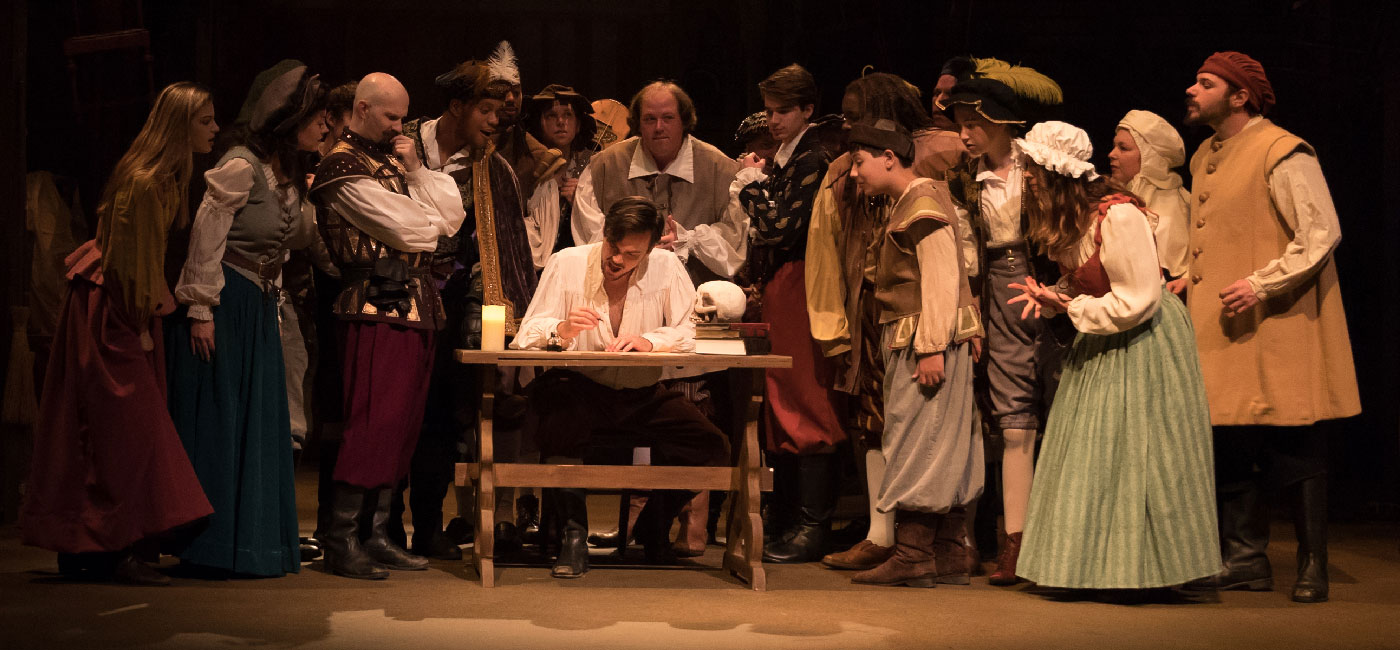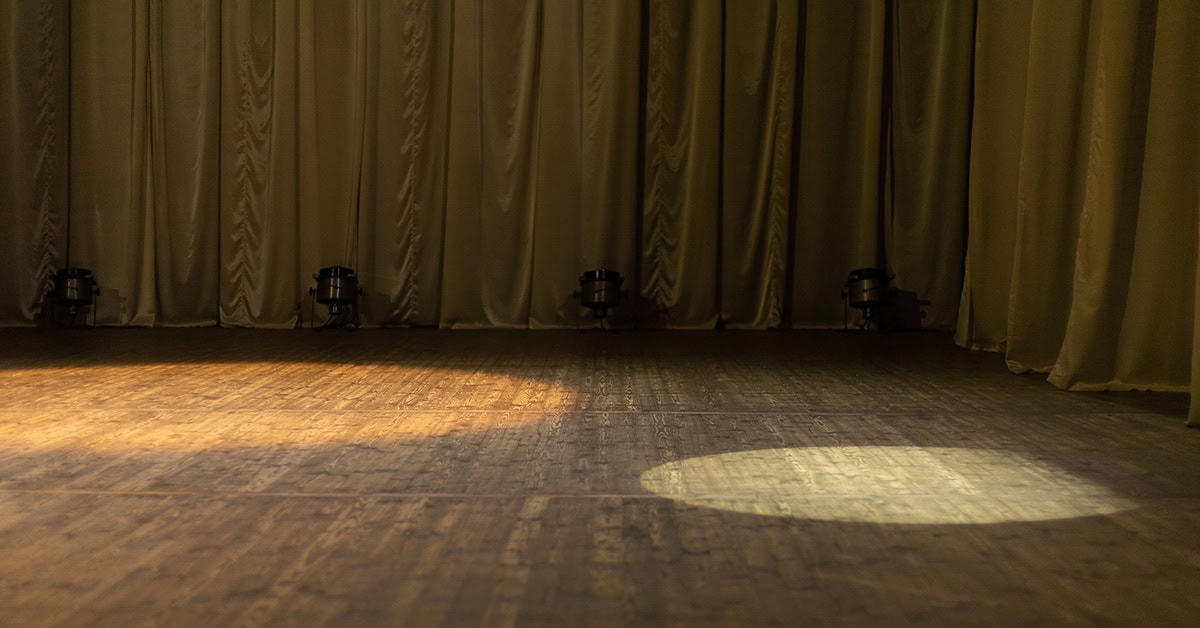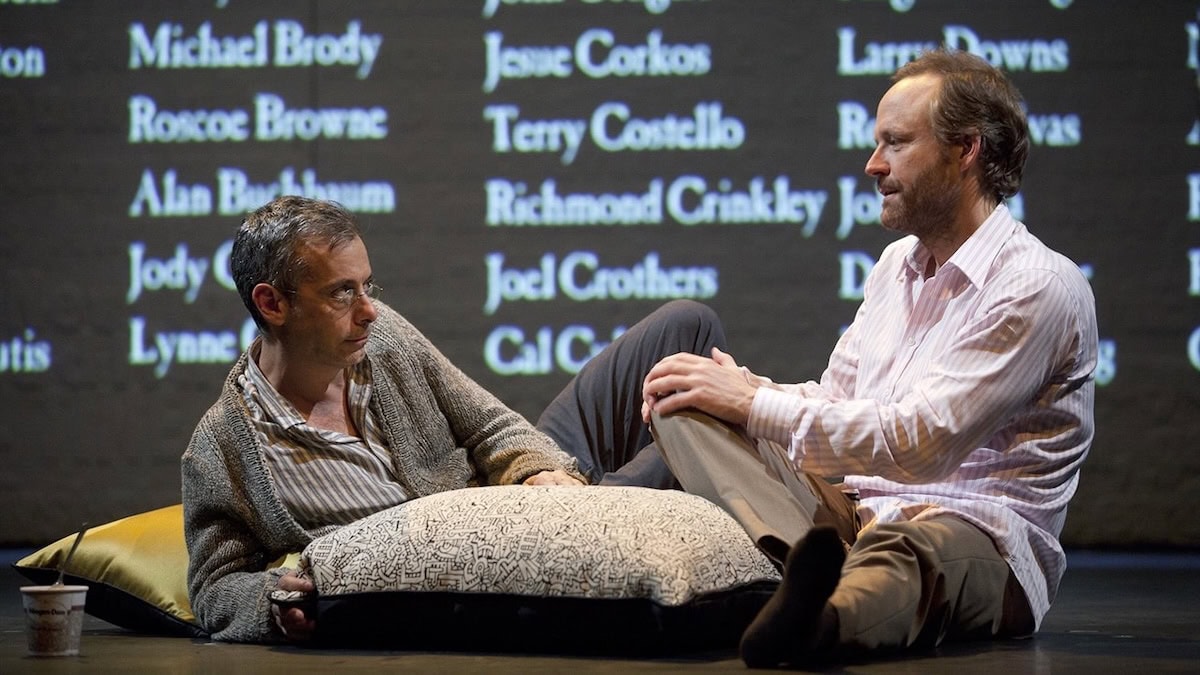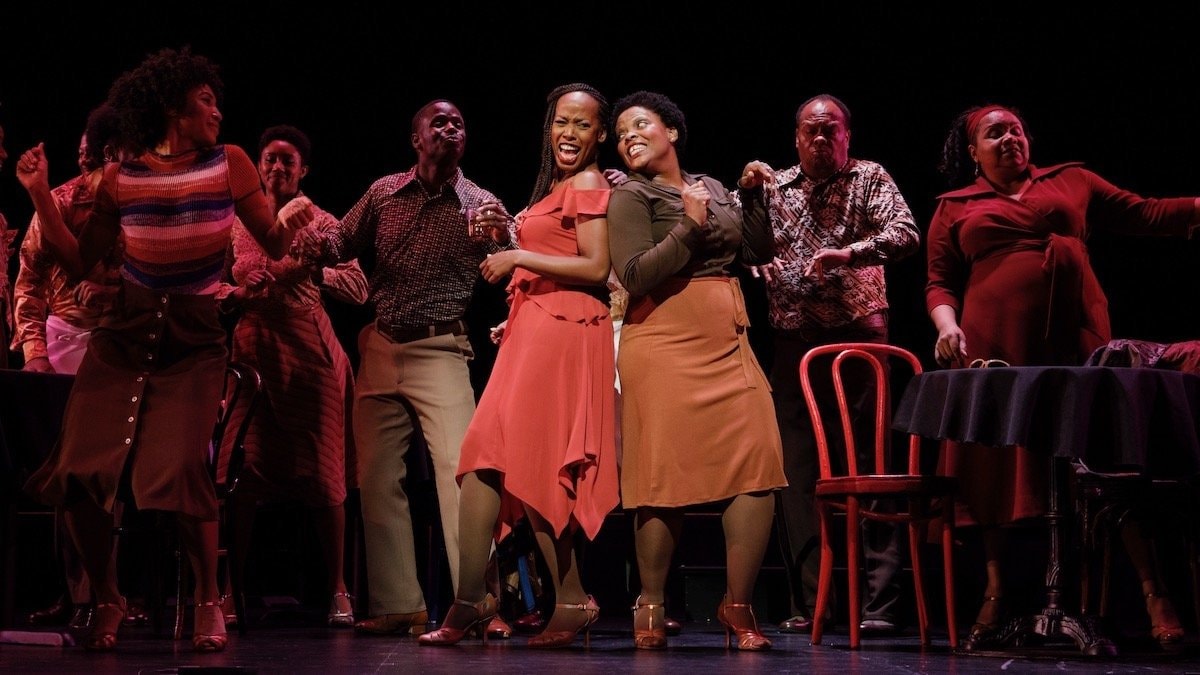
In July of 2014, on a whim, I saw the original stage production of Shakespeare in Love at the Noël Coward Theatre in London’s West End. I was studying at the British American Drama Academy in Oxford, and a few friends and I took the bus into the city. We couldn’t get in to see the production of Richard III starring Martin Freeman as the villainous hunchback, so we bought some last-minute cheap seats to Shakespeare in Love and hoped for the best. We sat in the front row and, though I strained my neck, I was completely mesmerized. I was in love with the bright-eyed, quirky Viola (played by Lucy Briggs-Owen). When she was onstage, I only had eyes for her. I remember thinking the story worked so much better onstage than in the Academy Award-winning film version (starring Gwyneth Paltrow and Joseph Fiennes). It’s a story about the theatre, so of course the stage would be the perfect place for it. I laughed and cried and added the spirited heroine to my list of dream roles.
Little did I know, I would only have to wait three years before the show made its way to Memphis, and I got my chance to follow Paltrow and Briggs-Owen in sharing the story of the spirited, feisty young woman whose courage in the face of chauvinism, passion for the beauty of poetry, and devotion to the theatre matched my own. Like Viola, I craved adventure, poetry, and love; I would find them in Playhouse on the Square’s production of Shakespeare in Love.
Playing Viola de Lesseps is a character actor’s dream come true, because she’s not your typical ingénue. You don’t just get to play one character; with Viola, you get to play four. There’s Viola — a wealthy young woman who “loves poetry above all”; Thomas Kent — Viola’s awkward male alter-ego; Romeo — the passionate, poetic lover; and Juliet — a young woman so blinded by love that she sacrifices herself. My greatest challenge while working on Viola was finding a way to make each of these characters distinct, yet related aspects of a whole. Viola is the young woman of privilege, the brave artist, the silver-tongued poet, and the hopeless romantic, all in one. It was great fun (and a great challenge) discovering the different faces of this multi-faceted heroine while in rehearsal.
At the end of one rehearsal, our fearless director, Irene Crist (a woman who has shared infinite amounts of wisdom with me over the years), suggested that the cast: “Think of the show as a love letter to Shakespeare, a celebration of the theatre…” For me, the show also became a love letter to Viola — a love letter to all the women who were sold into marriage against their will; to all the women who bound their breasts to be taken seriously; to all the women who were held back from becoming the artists they were meant to be.
I wanted to make sure Viola’s story was less about the romance with Shakespeare, the man, and more about her love for Shakespeare’s words. Viola is an artist trapped in a society that doesn’t take her seriously. She’s a prisoner of corsets and stuffy formalities and arranged marriages. I referred often to Virginia Woolf’s A Room of One’s Own during the rehearsal process. In Woolf’s essay, she imagines William Shakespeare has a sister who is just as brilliant and drawn to the theatre as he is. However, the noted difference between the two is that a sister of William Shakespeare would never have had the access to the theatre that a man had. Any woman of standing would have been deemed a whore if she set foot in a public playhouse. Woolf argues that one needs money and a room of one’s own in order to write, or to participate in any creative endeavor, for that matter. I like to think of Viola as Shakespeare’s sister — not in any kind of literal incestuous way, of course, but in the way that the two are cut from the same cloth. Viola is a nod to all the women who had to be muses when they really ached to be artists.
At the end of the play, as Viola stands at the mast of a ship bound for America, looking out into her future, Will says, “Viola is the spirit of freedom, of true love trying against all bounds to be out.” This is the line I most often referred back to when developing the character. Viola is indeed the embodiment of “true love,” though not for any man. Her true love is that for the theatre, for poetry, and for art. While in London, she finds freedom and poetry in her relationship with Shakespeare. Beyond the play, I secretly hope Viola continues to give her new husband Lord Wessex hell when the two arrive at his tobacco farm in Virginia.
Like Viola, I too have had my fair share of frustrations as a woman working in the theatre. Needless to say, though, we have come a long way since Shakespeare’s day. However, I think modern female audiences can still identify with Viola’s plight. It isn’t often that a character I play has many of the same intellectual and artistic pursuits as my own. She pushes boundaries for the sake of her love for the art. This past year, my sister, Rae, and I started an all-female arts collective in the city called FEMMEmphis (you can check us out on Facebook or at our website). Our mission is to champion marginalized females (and female-presenting/identifying individuals) and to empower the female artistic voice. Though Viola is a fictional character, it’s the real women like her who pushed gender boundaries in the past that inspire me to continue fighting for artistic opportunities for the underrepresented in the present.
I hate to move on from such a strong, independent character as Viola; I could play her forever and never get bored. I will, without a doubt, carry her feisty spirit with me to my future projects. Next up, I’ll be directing Sarah Ruhl’s Eurydice for New Moon Theatre, a local independent theatre company in Memphis. It will be the first play produced by New Moon that is directed and written by a woman. Needless to say, I will certainly be looking to the brave women in my life (my mother, sister, and Irene Crist, to name a few) for wisdom along the way. I hope to channel Viola’s free spirit and courage in moments of fear, particularly in today’s woman-hating political climate.
In times of doubt, I’ll remember Viola’s words from her first scene in the show: I will have adventure in my life. And poetry. And love. Love above all.
To purchase a copy of Shakespeare in Love, click here, and to learn more about licensing a production, click here.

Recommended Shows for Drama Festivals

The Truth Behind… The Normal Heart

